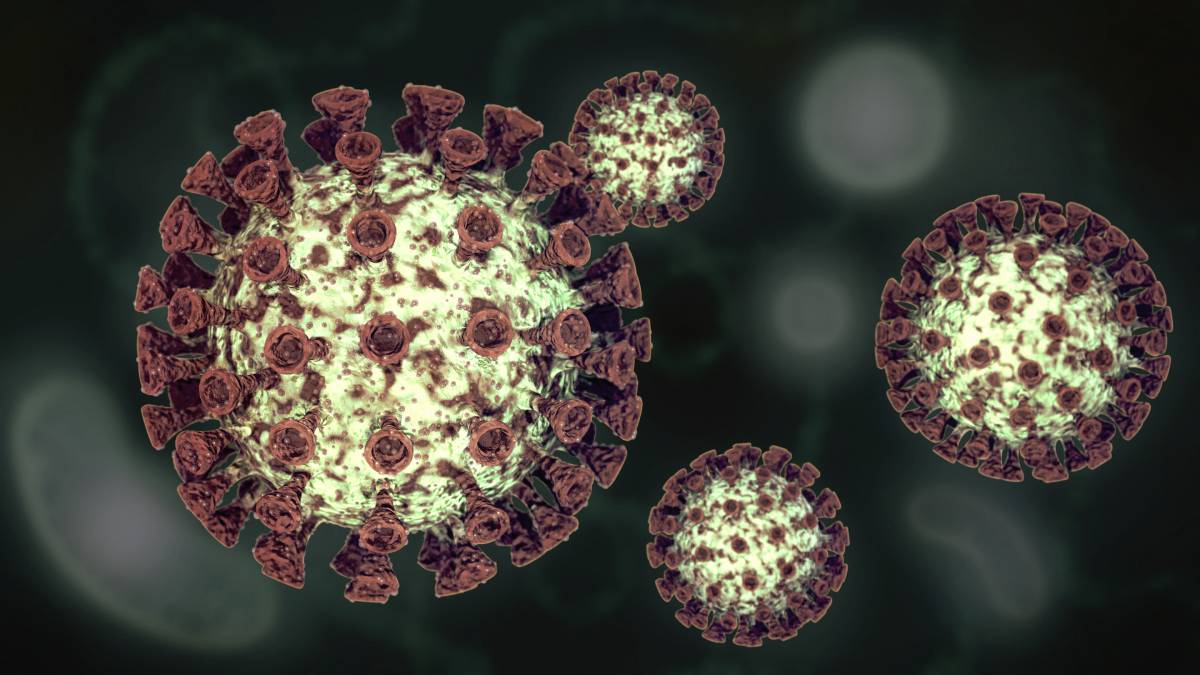The SARS-CoV-2 VUI 202012/01 variant sits poised to become the dominant coronavirus variant in the U.S. as early as March.1 Scientists first sequenced the variant, also known as B.1.1.7, in the U.K. in September 2020.2 It quickly garnered scientific and public attention as experts hypothesized that B.1.1.7’s fast spread contributed to the case spike in England. Recent research – yet to undergo peer review – estimates that B.1.1.7’s transmissibility exceeds that of prior variants by 50-75%.3,4 As of January 12, 2021, B.1.1.7 has appeared already in at least 33 countries.2 A key question is how available vaccines affect this SARS-CoV-2 variant.
B.1.1.7 differs from SARS-CoV-2 by 23 mutations in its genetic blueprint.2 Six of the mutations do not cause any change in the amino acid sequence. Eight changes, however, affect the spike protein of the virus. The spike protein plays a key role in receptor recognition and cell membrane fusion; it is this protein that locks onto compounds in the human body to enable infection. Currently, the N501Y mutation is of primary interest to scientists. This mutation – the change of an asparagine to a tyrosine – alters the receptor binding domain of the spike protein.2,5 Scientists hypothesize that this mutation allows the virus to attach more strongly to cells, which, in turn, increases its transmissibility. It is critical to understand whether this SARS-CoV-2 variant is different enough as to affect the efficacy of available vaccines.
Current vaccines target these spike proteins to impede the virus’s ability to latch onto host cells.2 A person’s immune response to the vaccine produces antibodies that bind to various locations on the spike protein in order to neutralize the virus. Experts fear, however, that certain mutations to the spike protein may destroy or impair the sites where antibodies bind.6 Fortunately, the N501Y mutation’s location makes it such that the mutation likely does not significantly affect antibody binding sites.6,7
Currently, the CDC reports that “there is no evidence to suggest that the variant [B.1.1.7] has any impact on the severity of disease or vaccine efficacy.”8 In a January 7 preprint, scientists at Pfizer and the University of Texas Medical Branch at Galveston concluded that the N501Y mutation did not affect the Pfizer vaccine-generated antibodies’ ability to latch on to the virus.9 In this study, researchers examined whether the sera of Phase 3 trial participants neutralized the B.1.1.7 variant as well as they neutralized the non-B.1.1.7 virus.10 The results suggest the N501Y mutation does not confer Pfizer vaccine resistance because the same quantity of serum successfully neutralized both the original and the mutated virus. Likewise, the Moderna vaccine appears to confer immunity that recognizes B.1.1.7. Early laboratory tests looked at blood samples from eight people and two primates who received the two Moderna vaccine doses. The scientists observed no decrease in neutralization capacity in the serum against B.1.1.7.11 In addition, Novavax reports its vaccine efficacy as 85.6% protective against B.1.1.7 in Phase 3 UK clinical trials.12
Neither Oxford-AstraZeneca nor Johnson & Johnson have yet released data that specifically examines their vaccines’ efficacy against B.1.1.7. Oxford-AstraZeneca scientists currently have an analysis underway that examines the vaccine’s neutralization capacity against the variant; they expect to report the results within two weeks.13 Moreover, recently released data from Johnson & Johnson claim 66% vaccine efficacy against COVID-19 infection and 85% efficacy against severe cases; unfortunately, the data does not speak explicitly to the vaccine’s efficacy against B.1.1.7.14 However, the study spanned multiple continents and concluded relatively recently, which makes it likely that some participants were exposed to B.1.1.7.
At present, scientists seem optimistic that current vaccines will confer some level of protection against the B.1.1.7 SARS-CoV-2 variant. As new variants arise, however, the current vaccines will continue to be tested.
References
1. Branswell, H. Coronavirus variant could become dominant strain by March, CDC warns. STAT News https://www.statnews.com/2021/01/15/covid19-b117-variant-cdc/ (2021).
2. Cohut, M. & Hewnigs-Martin, Y. New coronavirus variant: What we know so far. https://www.medicalnewstoday.com/articles/covid-19-what-do-we-know-about-the-new-coronavirus-variant (2021).
3. Davies, N. G. et al. Estimated transmissibility and severity of novel SARS-CoV-2 Variant of Concern 202012/01 in England. medRxiv (2020) doi:10.1101/2020.12.24.20248822.
4. Volz, E. et al. Transmission of SARS-CoV-2 Lineage B.1.1.7 in England: Insights from linking epidemiological and genetic data. medRxiv (2021) doi:10.1101/2020.12.30.20249034.
5. Rathnasinghe, R. et al. The N501Y mutation in SARS-CoV-2 spike leads to morbidity in obese and aged mice and is neutralized by convalescent and post-vaccination human sera. medRxiv (2021) doi:10.1101/2021.01.19.21249592.
6. Moore, J. P. & Offit, P. A. SARS-CoV-2 Vaccines and the Growing Threat of Viral Variants. JAMA (2021) doi:10.1001/jama.2021.1114.
7. Starr, T. N. et al. Deep Mutational Scanning of SARS-CoV-2 Receptor Binding Domain Reveals Constraints on Folding and ACE2 Binding. Cell 182, 1295-1310.e20 (2020) doi: 10.1016/j.cell.2020.08.012.
8. CDC. Emerging SARS-CoV-2 Variants. Centers for Disease Control and Prevention https://www.cdc.gov/coronavirus/2019-ncov/more/science-and-research/scientific-brief-emerging-variants.html (2020).
9. Xie, X. et al. Neutralization of N501Y mutant SARS-CoV-2 by BNT162b2 vaccine-elicited sera. bioRxiv (2021) doi:10.1101/2021.01.07.425740.
10. Pfizer. An In Vitro Study Shows Pfizer-BioNTech COVID-19 Vaccine Elicits Antibodies that Neutralize SARS-COV-2 with a Mutation Associated with Rapid Transmission. News | Pfizer https://www.pfizer.com/news/press-release/press-release-detail/vitro-study-shows-pfizer-biontech-covid-19-vaccine-elicits (2021).
11. Wu, K. et al. mRNA-1273 vaccine induces neutralizing antibodies against spike mutants from global SARS-CoV-2 variants. bioRxiv (2021) doi:10.1101/2021.01.25.427948.
12. Novavax, Inc. Novavax COVID-19 Vaccine Demonstrates 89.3% Efficacy in UK Phase 3 Trial. 3 https://ir.novavax.com/node/15506/pdf (2021).
13. Rivas, K. AstraZeneca expects COVID-19 vaccine data on UK variant within 2 weeks. Fox News https://www.foxnews.com/health/astrazeneca-expects-covid-19-vaccine-data-uk-variant-within-2-weeks (2021).
14. Johnson & Johnson. Johnson & Johnson Announces Single-Shot Janssen COVID-19 Vaccine Candidate Met Primary Endpoints in Interim Analysis of its Phase 3 ENSEMBLE Trial. https://www.jnj.com/johnson-johnson-announces-single-shot-janssen-covid-19-vaccine-candidate-met-primary-endpoints-in-interim-analysis-of-its-phase-3-ensemble-trial (2021).
